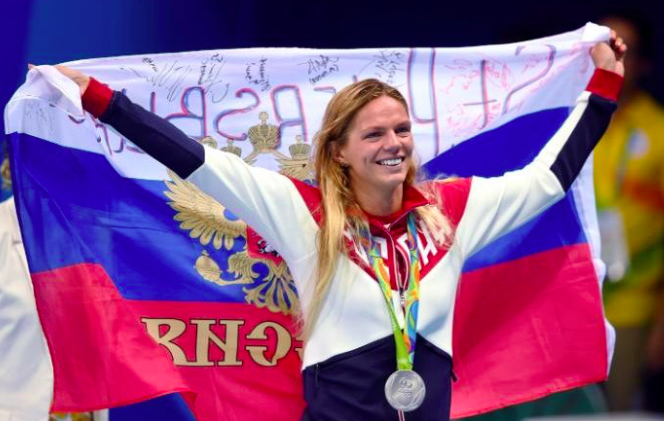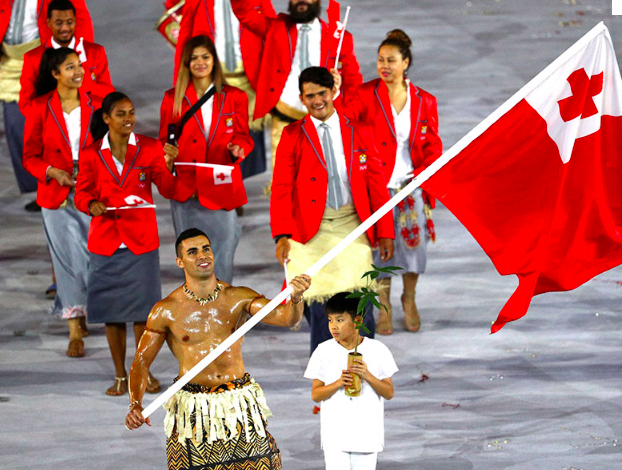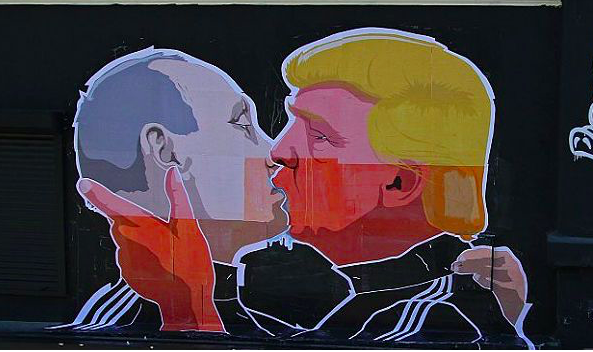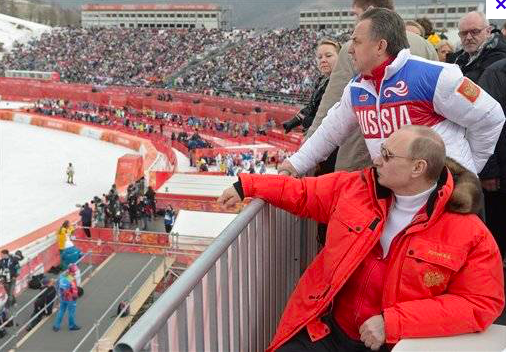|
By Hadas Aron and Emily Holland When swimmer Russian swimmer Yulia Efimova entered the Olympic swimming pool in Rio ahead of the 100m breaststroke finals the crowd booed loudly. Efimova, who had previously been banned from competition twice for doping, is a controversial figure at the Rio Olympics and has been embroiled in a major drama over the race to gold in the breaststroke. It was another chapter of the ongoing drama in the breaststroke race. Efimova’s chief contender, Lilly King, had said in an interview after the semi finals, “You’re shaking your finger ‘No. 1’ and you’ve been caught for drug cheating…I’m not a fan.” The crowd in Rio was not a fan either. King went on to win the gold medal and did not hesitate to rub it in, exclaiming to the press, “It just proves that you can compete clean and still come out on top with all the work you put in.” No one likes a cheater, so at first glance it seems only natural that the crowd sided with King: the Russian doping scandal dominated the headlines before the games even began, and Efimova herself failed a substance test twice. But beyond unsportsmanlike behavior, the Russian swimmer’s response to critics made a valid point, “I always thought the cold war was long in the past. Why start it again, by using sport?”
Booing Efimova may be about sportsmanship on the surface, but it reflects a deeper cultural paradigm on both the individual and the international levels. On the individual level, as much as Westerners would like her to be, Efimova is hardly a Russian uber villain. As elaborated by Sally Jenkins in The Washington Post, Efimova trains in Los Angeles rather than Russia. Her first doping offense was due to a banned substance found in a legal supplement she bought at GNC and was deemed an honest mistake. Her suspension was accordingly reduced. The second offense was caused by a prescribed medication provided by her Russian doctors that was only banned in January 2016. The timing of the ban and the fact that she may have consumed the substance only before it became banned and is the reason she was allowed to participate in the Olympics in the first place. Despite media coverage to the contrary, Efimova is a talented swimmer, and not an evil Russian spy. Because we are political scientists, the international aspect of the Efimova affair is even more interesting to us. We agree with Efimova (not about everything: swimming the breaststroke seven hours a day sounds almost worse than writing a dissertation): there is a definitive Cold War vibe to these Rio Olympic Games. Under the guise of clean sports, the so-called Western world is aligning behind the US and showing open hostility toward Russia and even its traditional allies. True, the scale of the Russian doping scandal is likely huge, but other countries have been implicated in similar doping scandals before and received have been much less vilified. Jamaican athletes for example, have persistently failed drug tests, and yet, while the suspicion toward Jamaican athletes is present, the hostility is decidedly absent. As the Russians rightly pointed out, doping in sport is universal, but few countries are openly booed by the international crowds and antagonized by their peers. As we argued before, the Olympics is ultimately an exercise in nationalism, and vilifying Russians is familiar territory. In the eyes of Westerners, and particularly Americans, Russians are already villains, so any evidence of their “evil ways” underscore old narratives and seem to prove what we already know to be “true”. Although the US has made new “evil” enemies since the end of the Cold War, international terrorists do not compete under their own flag in the Olympics. Countries from which terrorist emerge are either victimized, and thus worthy of our Western pity, or are not competitive at major sports so we never even get the chance to see them. In this soft power game only the big kids can play, and so only the big traditional international animosities reemerge. But wasn’t there a time when Americans didn’t hate the Russians and everyone just got along? Of course, but it was during the 1990s when Russia was weak and non-threatening both on and off the podium. The idea that large ideological international competitions are being played out in microcosm at the Olympic Games is underscored by the wide range of participants. Lily King and the Americans aren’t the only bullies on the playground: Australia’s Mack Horton called China’s Sun Yang a drug cheat, with France’s Camille Lacourt jumping in and accusing Yang of “pissing purple.” The reaction was swift and telling: in the wake of the accusations Chinese media and social media users called the remarks “disrespectful to China” “evil”, “gross” and “ignorant.” One user Chinese user wrote, “There is a scientific explanation for why he [Horton] swims so fast. It’s because he’s light, he has no brain.” One of the projects we have been working on is about international state reputations: how, why and under what conditions are they are formed? Can countries do something to change them? When will these efforts succeed? The Olympic Games are great opportunity to examine the persistence of state reputations in popular media and culture because the whole point of the games is one of friendly international competition. The reaction to Efimova and Sun Yang show that despite major changes to the international system, Western attitudes towards our traditional rivals have long shadows.
4 Comments
By Emily Holland and Hadas Aron Every four years, people all around the world, many of whom are otherwise uninterested in sport (I’m looking at you political scientists), are drawn to their couches to eat pizza and cheer as athletes perform super human achievements. But in addition to the anticipation, melodrama and tension of watching Simone Biles twist and flip through the air, the Olympics is a fascinating study of international relations in practice. Here, we examine the Olympics with the “impartial” eye of trained social scientists, applying the theories we struggle to teach undergraduates to several aspects of the games.
By Emily Holland In the long-list of incendiary and shocking comments to have escaped from Donald Trump’s mouth in recent months, his recent call inciting the Russian intelligence services to conduct cyber-espionage against his opponent Hillary Clinton is amongst the most shocking. “Russia, if you’re listening, I hope you’re able to find the 30,000 emails that are missing. I think you will probably be rewarded mightily by our press”, exclaimed Trump in a press conference this week. In this wake of this comment, news outlets have pounced on Trump’s soft stance towards and apparent connections with Russia. But his borderline-treasonous remarks aside, Trump’s calls for improved relations with Moscow are not unreasonable. What is more troubling is not that his associates have links to Moscow, but the fact that they are his associates at all. Trump’s campaign chairman, Paul Manafort, has worked extensively with disgraced and exiled former Ukrainian president Viktor Yanukovych, helping him win the 2010 Ukrainian presidential election. Yanukovych was famously overthrown in the Maidan Revolution, his now abandoned Mezhyhirya palace a symbol of dictatorial opulence. Although Manafort’s association with Yanukovych is distasteful, it is hardly illegal. But what is seriously worrying is the fact that Manafort worked extensively in Ukrainian politics at all: as I have written before, Ukrainian politics is amongst the most corrupt and venal in the world. If Manafort helped Yanukovuch win the 2010 election, he necessarily participated in corrupt practices. Manafort is not the only Trump associate to have links to an extremely corrupt industry. The coordinator of the Washington diplomatic corps for the Republicans in Cleveland was Frank Mermoud, a former state department official and director of Club Energy, a Ukrainian oil and gas company. My own dissertation research demonstrates the endemic corruption of the oil and gas industry in many former Soviet states. Ukraine’s energy industry is shockingly corrupt: the murky ties between Moscow, Kiev and third-party “gas middlemen” are extensive. This in part explains why Ukraine has been so unsuccessful at weaning itself of dangerous energy dependence on Moscow despite two major crises in 2006 and 2009. In the wake of the 2006 Russo-Ukrainian “gas war”, which left Ukraine without access to natural gas supplies in the middle of winter for several days, Gazprom, the Russian state gas conglomerate, and Naftogaz Ukraine, the Ukrainian state energy company, signed a new contract to end the dispute. One of the provisions of the contract stipulated that Russia would not deliver gas directly to Ukraine but would deliver instead to a third party: RosUkrEnergo. RosUkrEnergo is co-owned by Ukrainian oligarch Dmitry Firtash, who has made billions by buying Russian gas on the cheap and selling it to Ukraine at inflated prices. In my estimation, at certain point between 2006 and 2009, Firtash’s RosUkrEnergo was making between $3 and $5 million a day in profits at the expense of the Ukrainian state. Why would Kiev sign such an unfavorable contract? The answer is simple: corruption. So what does all of this have to do with Donald Trump? First, Manafort has also made millions off Ukraine’s energy insecurity: he worked as a consultant for none other than Dmitry Firtash. None of this is new information that Trump could possibly be unaware of: Manafort’s relationship with Firtash was first exposed in 2011, in a racketeering lawsuit that was later dismissed. Firtash, now in exile in Moscow, is now under indictment in the US. Second, Manafort also helped Firtash channel Russian money into influencing the outcome of the Ukrainian presidential election. During the time he worked with Manafort, Firtash used an $11b loan from bankers closed to Putin to back pro-Russian Yanukovych in his successful 2010 presidential campaign. Manafort and Mermoud are not the only Trump associates who have worked extensively in corrupt industries: Carter Page, Trump’s foreign policy advisor, worked closely with Gazprom for many years. To be clear, US politics is not squeaky clean. US campaign finance and lobbying are dirty businesses and are in need of profound restructuring. But Trump’s associates have made their careers working in some of the most corrupt industries in the world: the fact that Manafort has worked in Ukraine’s energy industry and has been involved in the installation of a pro-Russian president in a Ukrainian presidential election means that he has no scruples. The Ukrainian people have been embroiled in violence, revolution and now civil war in an attempt to rid themselves of endemic corruption of the political system, largely without success. The fact that Trump willingly chooses associates that perpetuated this corruption should be far more worrying to the American people than the prospect of a thaw in relations with Moscow. By Emily Holland and Hadas Aron In what seems like a new Olympic tradition, scandals over corruption, shoddy construction, and even kangaroos have dominated the headlines in preparation for the 2016 Summer Games. But amongst the usual crimes, Russia’s doping scandal stands out as particularly shameful. Although Russia avoided a blanket ban from the IOC, many Russian athletes, including the entire Track and Field team, will not be allowed to compete in the 2016 Olympic Games. But while the ban represents a huge personal tragedy for the athletes involved, the scandal may in fact be a win-win situation for Moscow.
|




 RSS Feed
RSS Feed